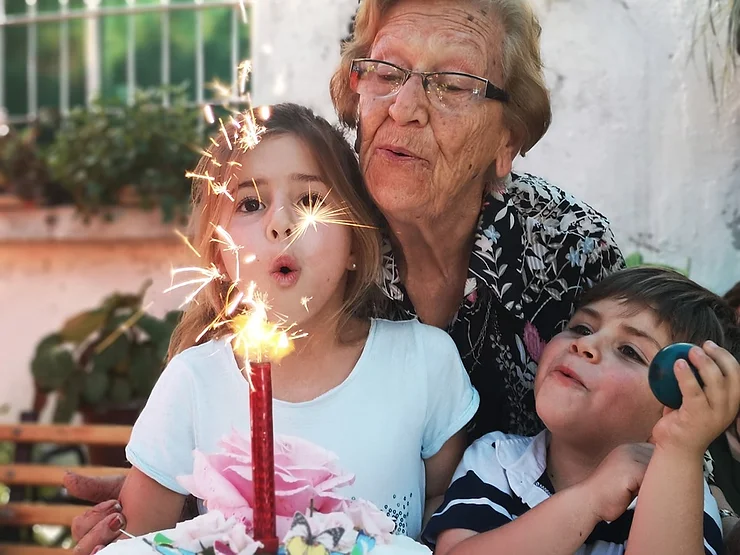
Grandparents Rights: Possession and Access and Conservatorships: What are my rights?
At the Law Office of Brandon Bledsoe, PLLC, we understand that grandparents have a special place in the lives of their grandchildren. Continuing to be involved in their grandchildren’s lives can often times be complicated by family dynamics and court proceedings. However, the Texas legislative appreciates there are situations where not allowing that continued relationship between grandparents and their grandchildren can be detrimental. Because of that, in some circumstances, a grandparent may my request the Court to grant them full custody or possession of or access to their grandchild.
The opposite is also true. You may be a parent wishing to prevent continued interference by a Grandparent. Is this possible in Texas? Yes, it is.
When Grandparents Seek Custody/Managing Conservatorship
In a grandparent in seeking custody, they must firstly have what is called “standing” to bring a suit to get custody of their grandchild. Standing under is the ability to bring a lawsuit. Generally, a grandparent can have standing if (1) they have had “actual care, control, and possession of the child for at least six months ending not more than 90 days preceding the date” of initiating the lawsuit, (2) if the child’s parents have passed away, (3) or any of the other ways stated in Section 102.003 of the Texas Family Code.
If a grandparent does not have standing under Section 102.003 of the Texas Family Code, they still may be able to file an original lawsuit or intervene in an existing case to get custody of the grandchild and be named managing conservator. The first option is if all parties agree. However, if all parties do not agree, the grandparents must provide “satisfactory proof” to the Court that the child’s present circumstance would be harmful to their grandchild. The standard the Court applies is whether the grandchild’s environment would “significantly impair the child’s physical health or emotional development.”
However, unlike when a grandparent is seeking custody/managing conservatorship, if they are only seeking a possessory conservatorship, they cannot file a new lawsuit unless one of their children (the parent of their grandchild) is incarcerated, has passed away, or is otherwise incapacitated. To even intervene into an existing case or file an original case, they must met that same standard that there would be a significant impact to their grandchild’s physical health or emotional development.
Grandparents Seeking Visitation
Unlike when a grandparent is trying to get custody/managing conservatorship, a grandparent can request to have visitation with their grandchild whether as a new lawsuit or a modification to an existing order. This falls under Section 154.433 of the Texas Family Code and is what is often known as the “grandparent access statute.”
The initial threshold to even filing though is a showing of a significant impair to the child’s physical health or emotional well-being. That means, with the initial filing, the grandparent must attach an affidavit that sets forth facts that denial of the grandparent’s possession of or access to their grandchild would significantly impair the child’s physical health or emotional well-being. This can apply in a few circumstances:
Firstly, at least one the child’s parents must still have parental rights. Specifically, there rights must not have been terminated. Secondly, the grandparent overcome the presumption that a parent acts in the best interest of the child by providing a “preponderance of the evidence” that denial of possession and access to the child would significantly impair the child’s physical health or emotional well-being. A preponderance of the evidence standard is you must show the judge that it is more likely true than not that denial would have a serious detrimental impact on one’s grandchild. Thirdly, the grandparent is a parent of a parent of the child and (1) that parent has been incarnated in jail or prison three months prior to initiating a court proceeding, (2) has been found by a court to be incompetent, (3) does not have actual or court ordered possession of the child, (4) or is dead.
However, there are some situations in which a grandparent would be unable to get possession of their grandchild. If the child has been adopted or an adoption is pending by a person of anyone other than a stepparent AND both parents have: (1) died, (2) had their parental rights terminated, or (3) executed an affidavit of waiver in interest in the child or an affidavit of relinquishment of parent’s rights which names anyone other than the child’s stepparent.
As stated above, grandparent custody and access cases are not always straightforward. However, depending on the circumstances, grandparents always have options can continue to be involved with the grandchildren’s lives. A parent can also prevent a grandparent’s involvement under the right circumstances. The above is very complicated to wade through, both in terms of facts and procedure involved. You’ll need a family law attorney who practices this area of the law with regularity. Please contact us online or call our office at 512-944-3329 for a free twenty-minute consult. This is a case type we regularly handle.


